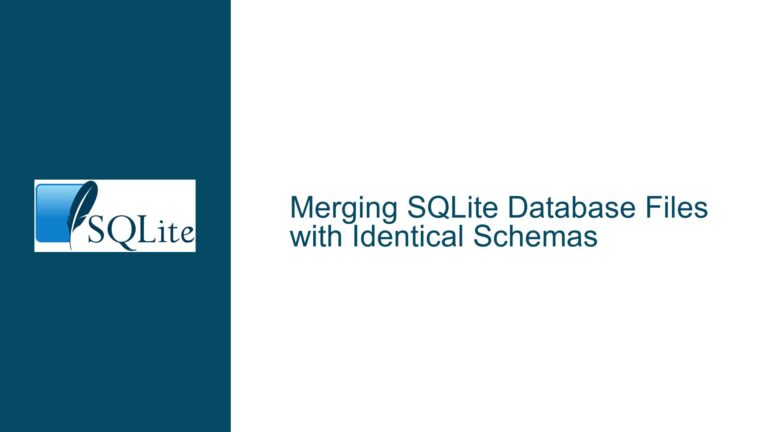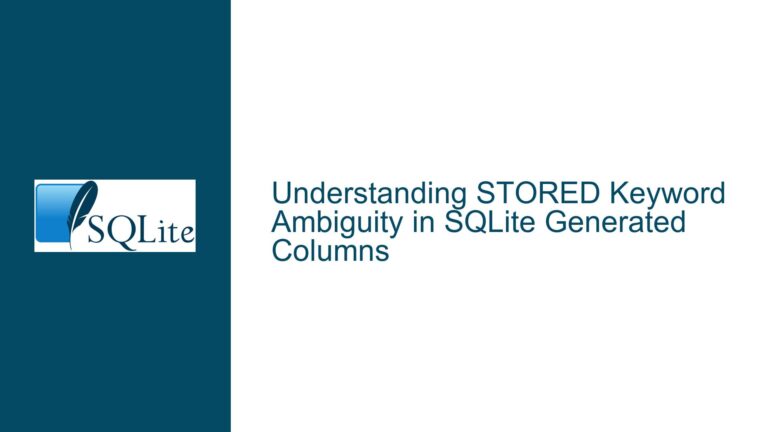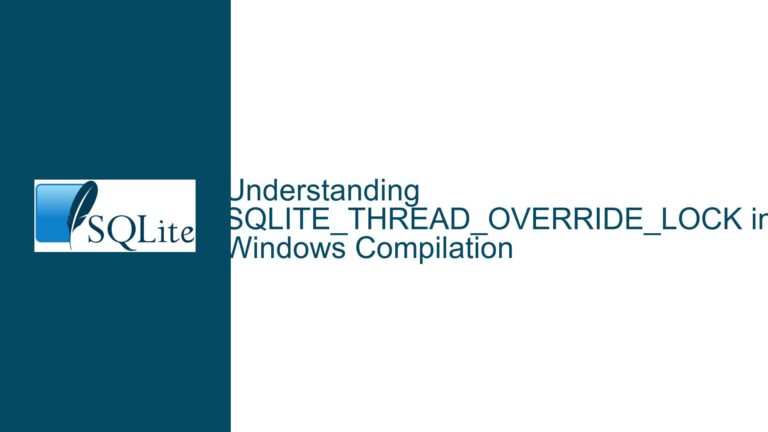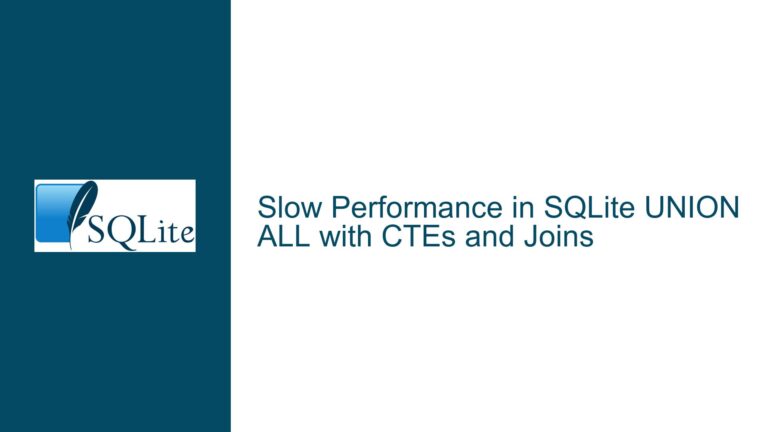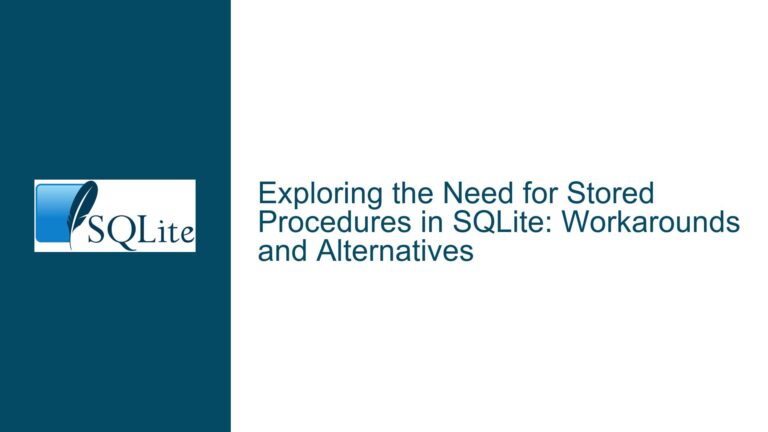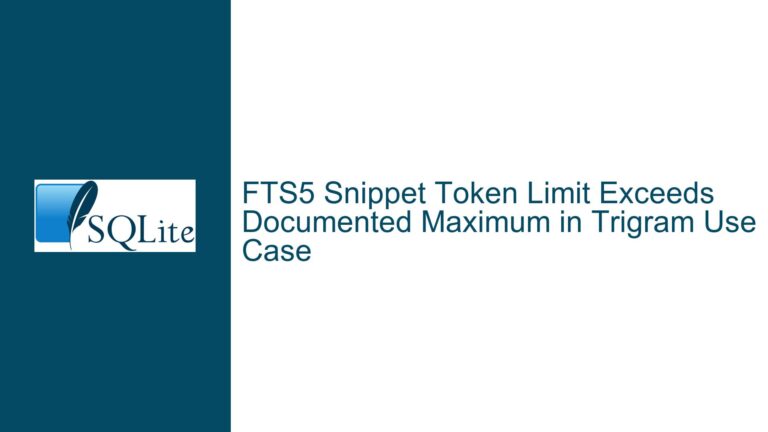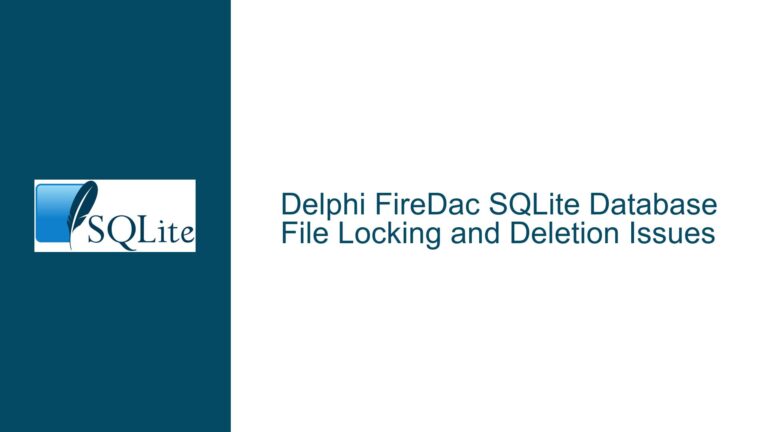Merging SQLite Database Files with Identical Schemas
Understanding the Schema and Structure of the Databases When dealing with the task of merging multiple SQLite database files, the first and most critical step is to thoroughly understand the schema and structure of each database. The schema defines the organization of data within the database, including tables, columns, data types, and relationships between tables….
